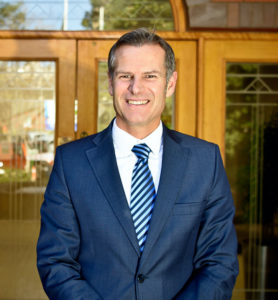By: Izak Smit, CEO, PPS Group

When the coronavirus hit South African shores, there was no roadmap to navigate the pandemic.
While we could take some lessons from Asia and Europe, we were yet to experience for ourselves what it would mean in our daily lives. At PPS we often reflect on the catalytic nature that the pandemic has had on the future world of work and how we approach technology, people and leadership.
In times of uncertainty, leadership teams must build on the core features of trust, fairness, authenticity, respect and innovation.
My experience of navigating the past 10 weeks of South Africa’s lockdown aligns with lessons I took from an expedition in 2019 to summit Aconcagua, the highest peak in South America, and the second highest of “the seven summits”. This was a father-son adventure with my youngest boy, 15 years of age at the time, who has the ambition to climb all seven summits. The thing about such adventures is that one must prepare and plan well, but you also need to adapt to the elements. In the same way, being thrown into this pandemic meant that I as a leader, with my team, had to look beyond strategy for solutions. We had to be quite tactical to protect the business, our employees, and our members.
Building the right team is key
Winning organisations are made successful by building from the core. This is why PPS invests heavily in growing the caliber of employees who can exercise leadership within their areas of skill and expertise. This goes beyond the management levels. It is about empowering people to take extreme ownership in their roles.
The same can be said for our expedition to the Andes. The team was led by Erik Vermeulen from Xplore, a skilled climber with experience in leading hazardous climbs around the world. While Erik provided the leadership, everyone had a personal goal and collective responsibilities that contributed to the greater project, and had to exercise personal mastery to show up for the team.
At the onset of the pandemic we learnt very quickly that decision-making should as far as possible not be centralised. The executive should create the broad rules, the fishbowl, but then empower teams to make their own decisions and swim in it. We called it freedom in a framework. In times of uncertainty, leadership teams must build on the core features of trust, fairness, authenticity, respect and innovation. Leaders who are able to navigate the evolving landscape and demonstrate these values will forge a healthy organisational culture.
There is no substitute for preparation
In preparing for Aconcagua, we had to prepare adequately, especially with the things within our control, such as physical strength and fitness, and of course equipment. Because the mountain is so high, almost 7 000m, you cannot summit if your body is not able to operate on low oxygen. With this prep, we would be better equipped to weather the things we cannot control, such as the elements on the mountain. This was particularly essential as my son lives with a condition called ‘Pectus Excavatum’ – a structural deformity of the sternum. The previous year he underwent a procedure in the chest to keep the sternum from pressing on the heart and lungs – they inserted two metal bars in his chest. After a recovery period of six weeks, he started training again for the mountain. We had already summitted Kilimanjaro and Montblanc in previous years.
Success is where preparation and opportunity meet. – Bobby Unser
This formula is no different in business. At PPS we have been on a digitalisation journey for many years. Many would ask why a niche financial services provider such as PPS would need to migrate to the cloud, adopting an omnichannel service strategy and remote technologies. Thank goodness we did! Our preparation was tested when we had to migrate all our staff to working from home at the start of the lockdown period. What surprised us was how successful this was, and how it created even more meaningful interactions and collaboration between employees. In tune with the proverb “Thou should not waste a crisis!”, this virus pulled many of us finally and firmly into the 21st century.
Adapt to the Environment
On the mountain, the weather can change quickly. Your body also has to adapt to altitude. This meant that we were not always climbing up, as one would expect. You go up and down – climb high, sleep low. Sometimes you must wait out the weather. And the descent can be more dangerous than the ascent.
Throughout the lockdown period, we had to learn different ways of keeping the organisation switched on and engaged. We are a relationship-based business. And if we want our PPS members to feel valued and cared for, our employees must experience the same within the organisation. We often had virtual townhall sessions. We encouraged recuperation with free leave days. Our PPS Academy was very active with training and coaching interventions across the organisations, albeit remotely.
In conclusion, we are still learning. We are conscious that life after COVID-19 will not be the same as life before. When people feel empowered and trusted, they will try to make the right decisions. It will not always be the right ones – we are human – but what we gain in terms of speed and a positive culture is worth far more than the cost of those mistakes.



